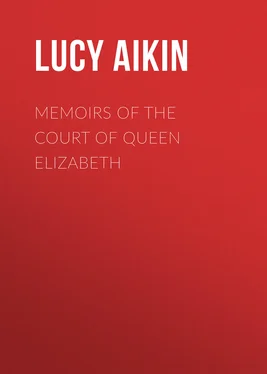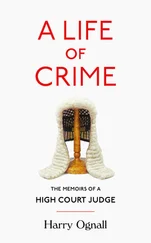Lucy Aikin - Memoirs of the Court of Queen Elizabeth
Здесь есть возможность читать онлайн «Lucy Aikin - Memoirs of the Court of Queen Elizabeth» — ознакомительный отрывок электронной книги совершенно бесплатно, а после прочтения отрывка купить полную версию. В некоторых случаях можно слушать аудио, скачать через торрент в формате fb2 и присутствует краткое содержание. Жанр: foreign_prose, История, foreign_edu, foreign_antique, на английском языке. Описание произведения, (предисловие) а так же отзывы посетителей доступны на портале библиотеки ЛибКат.
- Название:Memoirs of the Court of Queen Elizabeth
- Автор:
- Жанр:
- Год:неизвестен
- ISBN:нет данных
- Рейтинг книги:4 / 5. Голосов: 1
-
Избранное:Добавить в избранное
- Отзывы:
-
Ваша оценка:
- 80
- 1
- 2
- 3
- 4
- 5
Memoirs of the Court of Queen Elizabeth: краткое содержание, описание и аннотация
Предлагаем к чтению аннотацию, описание, краткое содержание или предисловие (зависит от того, что написал сам автор книги «Memoirs of the Court of Queen Elizabeth»). Если вы не нашли необходимую информацию о книге — напишите в комментариях, мы постараемся отыскать её.
Memoirs of the Court of Queen Elizabeth — читать онлайн ознакомительный отрывок
Ниже представлен текст книги, разбитый по страницам. Система сохранения места последней прочитанной страницы, позволяет с удобством читать онлайн бесплатно книгу «Memoirs of the Court of Queen Elizabeth», без необходимости каждый раз заново искать на чём Вы остановились. Поставьте закладку, и сможете в любой момент перейти на страницу, на которой закончили чтение.
Интервал:
Закладка:
The Londoners knew not how to contain their joy on this happy occasion:—the bells of all the churches were set ringing, bonfires were kindled, and tables were spread in the streets according to the bountiful and hospitable custom of that day, "where was plentiful eating, drinking, and making merry." On the following Sunday Te Deum was sung in the churches; probably an unexampled, however merited, expression of disrespect to the memory of the former sovereign.
Elizabeth received the news of her own accession at Hatfield. We are not told that she affected any great concern for the loss of her sister, much less did any unbecoming sign of exultation escape her; but, "falling on her knees, after a good time of respiration she uttered this verse of the Psalms; A Domino factum est istud, et est mirabile oculis nostris 33 33 It is the Lord's doing, it is marvellous in our eyes.
: which to this day we find on the stamp of her gold; with this on her silver, Posui Deum adjutorem meum 34 34 I have chosen God for my helper.
." 35 35 "Fragmenta Regalia."
Several noblemen of the late queen's council now repairing to her, she held at Hatfield on November the 20th her first privy-council; at which she declared sir Thomas Parry comptroller of her household, sir Edward Rogers captain of the guard, and sir William Cecil principal secretary of state, all three being at the same time admitted to the council-board. From these appointments, the first of her reign, some presages might be drawn of her future government favorable to her own character and correspondent to the wishes of her people.
Parry was the person who had filled for many years the office of her cofferer, who was perfectly in the secret of whatever confidential intercourse she might formerly have held with the lord-admiral, and whose fidelity to her in that business had stood firm against all the threats of the protector and council, and the artifices of those by whom his examination had been conducted. That mindfulness of former services, of which the advancement of this man formed by no means a solitary instance in the conduct of Elizabeth, appeared the more commendable in her, because she accompanied it with a generous oblivion of the many slights and injuries to which her defenceless and persecuted condition had so long exposed her from others.
The merit of Cecil was already in part known to the public; and his promotion to an office of such importance was a happy omen for the protestant cause, his attachment to which had been judged the sole impediment to his advancement under the late reign to situations of power and trust corresponding with the opinion entertained of his integrity and political wisdom. A brief retrospect of the scenes of public life in which he had already been an actor will best explain the character and sentiments of this eminent person, destined to wield for more than forty years with unparalleled skill and felicity, under a mistress who knew his value, the energies of the English state.
Born, in 1520, the son of the master of the royal wardrobe, Cecil early engaged the notice of Henry VIII. by the fame of a religious dispute which he had held in Latin with two popish priests attached to the Irish chieftain O'Neal. A place in reversion freely bestowed on him by the king at once rewarded the zeal of the young polemic, and encouraged him to desert the profession of the law, in which he had embarked, for the political career.
His marriage with the sister of sir John Cheke strengthened his interest at court by procuring him an introduction to the earl of Hertford, and early in the reign of Edward this powerful patronage obtained for him the office of secretary of state. In the first disgrace of the protector he lost his place, and was for a short time a prisoner in the Tower; but his compliant conduct soon restored him to favor: he scrupled not to draw the articles of impeachment against the protector; and Northumberland, finding him both able in business and highly acceptable to the young monarch, procured, or permitted, his reinstatement in office in September 1550.
Cecil, however, was both too wary and too honest to regard himself as pledged to the support of Northumberland's inordinate schemes of ambition; and scarcely any public man of the day, attached to the protestant cause, escaped better in the affair of lady Jane Grey. It is true that one writer accuses him of having drawn all the papers in her favor: but this appears to be, in part at least, either a mistake or a calumny; and it seems, on the contrary, that he refused to Northumberland some services of this nature. It has been already mentioned that his name appeared with those of the other privy-councillors to Edward's settlement of the crown; and his plea of having signed it merely as a witness to the king's signature, deserves to be regarded as a kind of subterfuge. But he was early in paying his respects to Mary, and he took advantage of the graciousness with which she received his explanations to obtain a general pardon, which protected him from all personal danger. He lost however his place of secretary, which some have affirmed that he might have retained by further compliances in religion. This however is the more doubtful, because it cannot be questioned that he must have yielded a good deal on this point, without which he neither could nor would have made one of a deputation sent to conduct to England cardinal Pole the papal legate, nor probably would he have been joined in commission with the cardinal and other persons sent to treat of a peace with France.
But admitting, as we must, that this eminent statesman was far from aspiring to the praise of a confessor, he will still be found to deserve high commendation for the zeal and courage with which, as a member of parliament, he defended the interests of his oppressed and suffering fellow-protestants. At considerable hazard to himself, he opposed with great freedom of speech a bill for confiscating the property of exiles for religion; and he appears to have escaped committal to the Tower on this account, solely by the presence of mind which he exhibited before the council and the friendship of some of its members.
He is known to have maintained a secret and intimate correspondence with Elizabeth during the time of her adversity, and to have assisted her on various trying occasions with his salutary counsels; and nothing could be more interesting than to trace the origin and progress of that confidential relation between these eminent and in many respects congenial characters, which after a long course of years was only terminated by the hand of death;—but materials for this purpose are unfortunately wanting.
The letters on both sides were probably sacrificed by the parties themselves to the caution which their situation required; and among the published extracts from the Burleigh papers, only a single document is found relative to the connexion subsisting between them during the reign of Mary. This is a short and uninteresting letter addressed to Cecil by sir Thomas Benger, one of the princess's officers, in which, after some mention of accounts, not now intelligible, he promises that he and sir Thomas Parry will move the princess to grant his correspondent's request, which is not particularized, and assures him that as his coming thither would be thankfully received, so he wishes that all the friends of the princess entertained the same sense of that matter as he does. The letter seems to point at some official concern of Cecil in the affairs of Elizabeth. It is dated October 24th 1556.
The private character of Cecil was in every respect exemplary, and his disposition truly amiable. His second marriage with one of the learned daughters of sir Anthony Cook conferred upon him that exalted species of domestic happiness which a sympathy in mental endowments can alone bestow; whilst it had the further advantage of connecting him with the excellent man her father, with sir Nicholas Bacon and sir Thomas Hobby, the husbands of two of her sisters, and generally with the wisest and most conscientious supporters of the protestant interest. This great minister was honorably distinguished through life by an ardor and constancy of friendship rare in all classes of men, but esteemed peculiarly so in those whose lives are occupied amid the heartless ceremonial of courts and the political intrigues of princes. His attachments, as they never degenerated into the weakness of favoritism, were as much a source of benefit to his country as of enjoyment to himself; for his friends were those of virtue and the state. And there were few among the more estimable public men of this reign who were not indebted either for their first introduction to the notice of Elizabeth, their continuance in her favor, or their restoration to it when undeservedly lost, to the generous patronage or powerful intercession of Cecil.
Читать дальшеИнтервал:
Закладка:
Похожие книги на «Memoirs of the Court of Queen Elizabeth»
Представляем Вашему вниманию похожие книги на «Memoirs of the Court of Queen Elizabeth» списком для выбора. Мы отобрали схожую по названию и смыслу литературу в надежде предоставить читателям больше вариантов отыскать новые, интересные, ещё непрочитанные произведения.
Обсуждение, отзывы о книге «Memoirs of the Court of Queen Elizabeth» и просто собственные мнения читателей. Оставьте ваши комментарии, напишите, что Вы думаете о произведении, его смысле или главных героях. Укажите что конкретно понравилось, а что нет, и почему Вы так считаете.












